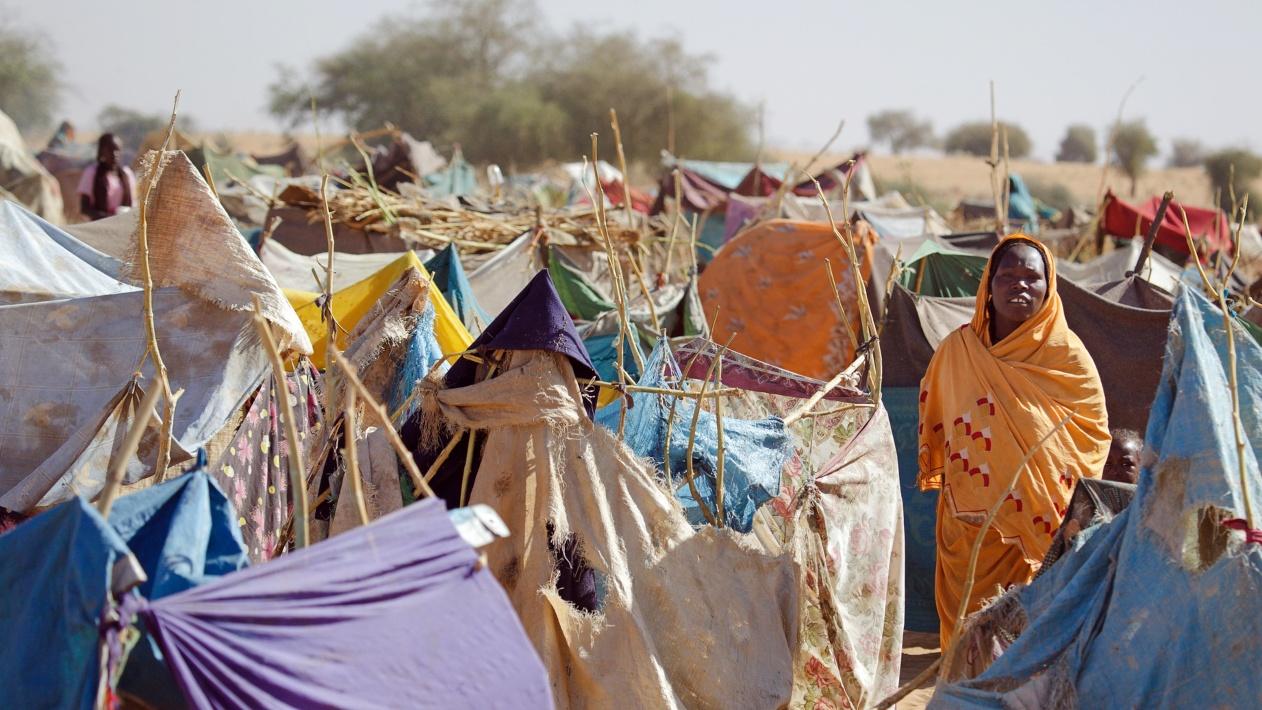The Sudanese state has been governed by patrimonial order where loyalty is rewarded with patronage. The weakness of central state institutions has enabled the paramilitary Janjaweed to carve out its own power base. An attempt to muscle in on this power by the army has led to the current crisis and leaves hopes of a transition to civilian rule in tatters, writes Yohannes Woldemariam.
Since independence
Sudan has been plagued by military rule for most of its existence since it became an independent state in 1956. Every intermission of civilian rule has been interrupted by military coups. Since independence, there have been six successful and five unsuccessful coups in Sudan. The civilian rulers lacked a national vision, and the political parties were weak and unable to unite the country, making them easy targets for the military.
The only party that appeared to have any national political agenda was the Sudanese Communist Party but in a predominantly Islamic society, it always seemed out of place and vulnerable. The country’s first political party, the Umma party was dominated by the Al-Mahdi family and although they were prominent in Sudan that party lacked a national platform. Sudan has had a collection of other parties who have tried but failed to leave a legacy.
Out of this, rose General al-Bashir, a former military officer who ruled Sudan with an iron fist for thirty years. Al-Bashir collaborated with Hassan al-Turabi to overthrow the democratically elected government of Sadiq al-Mahdi in 1989. The partnership of al-Turabi and al-Bashir transformed Sudan, entrenching hardline Islamist ideals and Shariah law. The morality police in Sudan acted with impunity and have been known to publicly flog women for minor ‘infractions’ like wearing trousers.
Regional violence
The ‘Southern question’ has proved chronically destabilising. A racist Khartoum elite who saw themselves as Arab were ill-equipped to deal with South Sudanese who do not share that identity and had been administered separately by the British during colonial rule.
Pre-independence violence in the region may have cost three million people their lives before South Sudan seceded in 2011, and a territorial dispute with Sudan around the oil-rich Abyei area meant more fighting and eventually a UN peacekeeping contingent.
The Darfur area in Western Sudan was equally marginalised and became the country’s epicentre of violence at the beginning of the century and brought Mohamed Hamdan Dagalo (al-Hemedti) to political and military prominence. What differentiates al-Hemedti is that he is not an insider or part of the Khartoum elite which has dominated politics since independence. Al-Hemedti presided over the paramilitary force known as Janjaweed which led the fighting in Darfur. In doing so, he won al-Bashir’s trust for his ruthlessness which propelled him to the limelight.
Al-Bashir became the first sitting president indicted by the International Criminal Court for the Darfur genocide. He escaped arrest when he ventured to South Africa in 2015 because he was allowed to slip out of the country against the recommendations of the South African High Court.
An unholy partnership: al-Burhan and al-Hemedti
In 2019, Sudan was shaken by protests triggered by inflation and the rising cost of bread. As demands for political changes grew, al-Burhan and al-Hemedti – al-Bashir’s operatives in Darfur – along with former spy chief Salah Gosh betrayed al-Bashir and seized power.
General Abdel Fattah Abdelrahman Al- Burhan is a career military man, part of the Khartoum elite, who now is the head of the army and the chair of the Sovereignty Council which runs Sudan. Al-Hemedti began as a camel trader before rising through the ranks to lead the paramilitary Janjaweed (re-named the Rapid Support Forces) and partnered in the coup against al-Bashir. He served as the deputy chairman of the military council
Following the coup in 2019, a transitional coalition of civilians and military was formed with the stated intention of eventually holding elections and returning to civilian rule. A civilian technocrat Abdalla Hamdock was appointed as Prime Minister, but he never held much power.
Hamdock served for two years in the so-called transitional arrangement which saw the three of them in a troubled triangular game. Hamdock was put under house arrest in October 2021, reinstated in November 2021, and eventually he ‘resigned’ in January 2022, one month before the transition to civilian rule was originally due to take place.
Despite Hamdock’s troubled short tenure, Sudan was removed from the list of ‘international sponsors of terrorism’, sanctions were lifted, and some money from financial institutions became available. Yet, his efforts were interrupted by Sudan’s ambitious general and the promise of civilian rule looks to have evaporated.
al-Burhan versus al-Hemedti
After the coup that brought them both to power, al-Burhan wanted the Janjaweed to be integrated into the army within two years. Al-Hemedti wanted a more gradual integration over the course of a decade. Al-Hemedti saw al-Burhan’s move as a consolidation of power which threatened the patronage he had built. This created an impasse that triggered the current crisis.
Now al-Hemedti and al-Burhan are head-to-head against each other with both sides well equipped and prepared for a long fight putting civilians in harm’s way and bringing violence to the capital Khartoum.
Sudan is bordered by seven countries: Egypt and Eritrea in the northeast, Libya in the northwest, Chad in the west, the Central African Republic in the southwest, South Sudan in the south, and Ethiopia in the southeast. Most of these countries are plagued by their own instabilities and have porous borders and share overlapping ethnic groups with Sudan. The threat of violence spreading must be taken seriously.
The nation-state model appears to be crumbling in the Horn of Africa and Sudan is providing another example of dysfunction and disintegration.
Photo credit: Rita Willaert used with permission CC BY-NC 2.0





